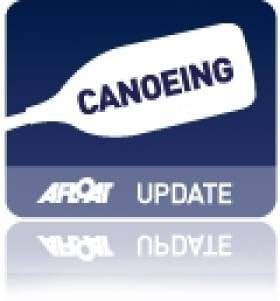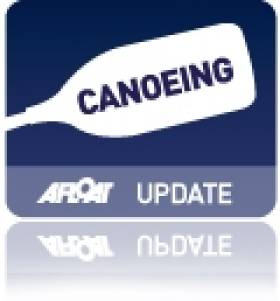Displaying items by tag: Sportswoman of the Month
Egan Sets Sights on Olympic Canoeing Spot
#CANOEING - The Evening Herald reports that top Irish canoeist Jenny Egan is headed to Florida for a few months of training towards a spot at the 2012 Olympics.
A sprint and marathon racer, Egan was named as The Irish Times/Irish Sport Council's Sportswoman of the Month for May 2010 in recognition of some very impressive performances.
Indeed, the Kildare native enjoyed much success in 2012, with second place in the 5000m at the World Sprint Cup in the Czech Republic and a new Irish record in the 500m at the Canoe Slalom Worlds in Hungary among her achievements.
Heading into 2012, the Salmon Leap club member will surely be shrugging off setbacks like her crash in the heat and humidity of Singapore at the Canoe Marathon Worlds last October.
The new year brings a new focus, as Egan will concentrate on the 500m and 200m K1 sprint distances for the London games, with the final qualifiers - for just 15 spots - taking place in Poland in April.
The Evening Herald has more on the story HERE.
A member of the renowned Salmon Leap club in Leixlip, Jenny's path to success was evident at an early stage with her performances at junior level placing 15th and 5th in successive years, and then claiming a silver medal at the 2005 World Junior Marathon Championships in Perth, Australia. Since entering the senior ranks in 2006, Jenny has made steady and encouraging progress, gaining her first medal with a bronze at the British Senior National Marathon Championship and achieving a ranking of 15th in Europe in the Under-23 category in her first year.
Her big breakthrough came last year at the Senior Sprint Canoe World Cup in Szeged, Hungary where she took silver in the 5,000m becoming the first Irish female sprint canoeist to win a medal of any colour, and only missed out on gold by just six seconds to winner, Renata Csay of Hungary.
Jenny's strong performances so far this year, saw her take a silver medal at the World Cup 2 race in the Czech Rep. The 5000m event is one of the most popular of all in championships. This was no exception; quickly a group of 5 girls broke from the field headed by Lani Belcher, Great Britain, Jenny Egan, Anna Adamova, Czech Republic and Kristina Zur of the USA. The Austrian, Anna Lehaci, could not keep up with the pace. So it was a four person fight for the medals. However, due to a miscalculation the bell for the final lap was sounded early confusing the athletes leading the race. Eventually all the athletes completed the full distance with Lani Belcher (GBR) sprinting to the Gold medal. Due to the confusion two silver medals were given to Adamova and Egan with Bronze going to Zur.
With Jenny's medal tally on the international canoeing circuit beginning to rack up, it is only a matter of time before she makes the biggest leap on the podium to gold medal position with the support of her family, especially her brother and former canoeing international Peter. The DCU sports science graduate joins, jockey Nina Carberry, Irish Irish female rugby captain Fiona Coghlan, golfing twins Lisa and Leona Maguire and cross country runner Fionnuala Britton in the race for the overall accolade of The Irish Times/Irish Sports Council Sportswoman of the Year 2011.
Established in 2004, the aim of the Sports Woman of the Year awards is to recognise the abilities and achievements of women in Irish sports. The awards run over a twelve month period, with the judges selecting a winner each month for her ability to excel at sport. From the twelve monthly winners, the overall Sportswoman of the Year is selected and announced.






























































